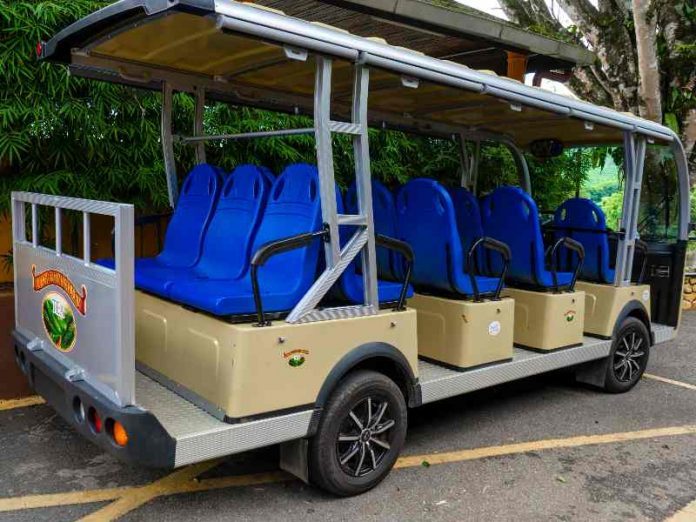By Aditi Basu
Africa is one of the top countries undergoing a major transition in the vehicle segment. The major shift from traditional cars to electric battery-powered vehicles has been an impressive and a major one. This dramatic inclination is a result of increased awareness of environmental issues and the need to fulfil greener ambitions set by African economies. Future Market Insights projects the electric vehicle battery market to surpass nearly $13 billion in 2027, likely to grow at a CAGR of 8.5%.
Electric vehicles are highly dependent on the strength-to-weight ratio to perform efficiently on the road. Along with this, the increasing dependency on passenger cars for daily travel and commute along with the penetration of plug-in hybrid electric cars is playing a crucial role in the rapid adoption of the same. In this article, we will look at why passenger cars remain the most prominent vehicle type in the electric vehicle battery market.
Environment-friendly initiatives by the African government to add immense growth
The adoption of electric passenger vehicles in Africa has grown gradually over the years owing to the initiatives launched by African governments. They are increasingly investing in research and development activities to cater to environmental issues, taking charge of spreading awareness of vehicle electrification. They are doing this by pointing out the positive impacts on climate change driven by a global tide in the use of electric vehicles (EVs).

African economies like Ghana and Kenya are aiming toward high development and growth by the end of 2030. Even if the target is met halfway, the overall automotive market in the regions is anticipated to grow at a tremendous pace. The Automobile Association of Zimbabwe, along with the other members of the African Council of Touring and Automobile Clubs, revealed that the unregulated importing of cars in many African countries has a negative impact on the continent’s environment, health, society and economy.
Additionally, there are a varied number of reasons why people and organisations from Africa are choosing to invest in electric vehicle-powered passenger cars rather than traditional passenger cars. In 2021, the UN Environment Programme (UNEP), along with the global electric facility, announced its plans to help South Africa to shift to zero-emission electric mobility. Through this partnership, the programme will focus on building electric charging stations, cutting down on production and manufacturing costs and offering affordable plug-in hybrid electric cars. This, in turn, is expected to drive the sales of electric battery-powered passenger cars.
Furthermore, the uYilo eMobility programme was awarded funding within the Smart Energy Solutions for Africa project. The project started in October 2021 and will run till September 2025. Through this programme, Africa’s electric mobility solutions along with repurposing batteries utilised in electric vehicles will be extended. This, in turn, will drive the growth of passenger vehicles in the region.
Looking at the current scenario, Africa is dealing with the major issue of combating pollution. Thus, to penetrate the market, manufacturers of electric passenger vehicles are launching and introducing initiatives, driving the growth the same.
Increasing the prices of fossil fuels to make a difference in the market
According to sources, Sub-Saharan African (SSA) countries are looking for alternative energy sources for reducing the growing burden of fuel dependency by leveraging their abundant renewable energy resources. Electric Vehicles (EVs), powered by batteries, offer a potential solution to such problems. Furthermore, there are many reasons why the increasing prices of fossil fuels are making difference in the whole market scenario.
Africa’s transport facilities are mostly fuel-based which has led to the creation of a financial burden on citizens and a fiscal burden on economies. Secondly, the demand for electricity in the region is projected to increase fourfold by the end of 2040. To cater to the demand, African countries are optimally utilising their available resources and putting them to use in the passenger vehicle segment.
As the African region shifts its focus toward more cutting-edge technologies and forms strategic collaborations with automotive OEMs, the electric vehicle battery market will have brighter prospects. Mounting environmental concerns such as global warming and rising pollution levels have prompted manufacturers to propose alternative energy sources to power vehicles.
Top players venturing into the African market of EV passenger cars
Most of the top automakers based out of Africa are concerned about educating consumers and changing their perception of the benefits of vehicle electrification. They are doing this by offering them the chance to experience the enhanced performance of electric vehicles. For instance, in October 2021, Electric vehicle company Tesla deployed its first two Supercharger stations in Morocco, marking its first entry into the African market. Supercharger stations are generally the first step toward Tesla entering a new market, reports Electrek. The electric vehicle company has opened new stations at the Onomo Hotel in Casablanca and the Al Houara Resort and Spa in Tangier.
In February 2022, Agilitee Africa, one of the leading South Africa-based Electric Vehicles manufacturers, launched its first self-charging four-wheeler electric vehicle named the Agility-Go. The car has a travel range that can cover 300km if fully charged and also self-charges, 1100p HD Reverse Camera with a large central screen, sensitive and quick response combined hydraulic brakes, Front & Rear impact guard with side protection for all occupants, Bluetooth hands-free calls, child lock Hill-Start assist control (HAC) and Automatic Gear.
Conclusion
Across the globe, the electric vehicle battery market is expanding at a breakneck pace. As a result of the increased demand for EVs, major vehicle manufacturers are entering the African market, which is ultimately expected to stimulate demand for EV batteries in the long run. Future market insights project the demand for stored electricity-based EV batteries to gain significant traction, attributed to the fact that electric vehicles for travelling larger distances are acquiring popularity.
Over the years, a massive amount of transformation is happening in the African automotive industry. The players in the region are optimising as per the need and looking forward to making smart decisions necessary to achieve e-mobility. Looking at the way momentum is building, Africa is projected to adapt to newer technologies and change with time.





